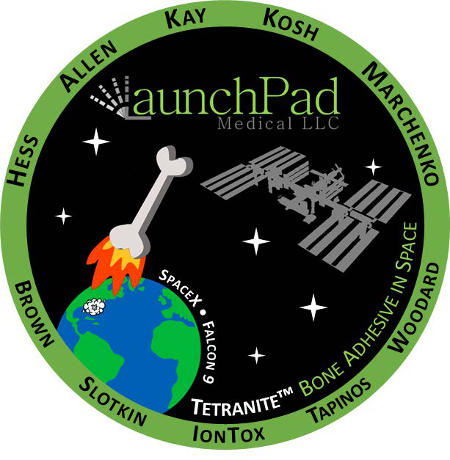
This November, Kalamazoo-based contract research organization, IONTOX LLC, in collaboration with LaunchPad Medical LLC, will commence an investigation that involves sending human osteoblasts, specific cells required for bone healing and formation, to the International Space Station (ISS). Scientists at IONTOX’s headquarters, located in the Western Michigan University Homer Stryker M.D. School of Medicine Innovation Center, are currently preparing human cells for the studies, which will be done in part to investigate novel approaches in studying bone graft substitutes in osteoporotic environments.
LaunchPad Medical is a developer of synthetic bone adhesives and substitutes, often in conjunction with metallic bone implants, which aid in the regeneration of healthy bone around the implant. The ability for their technologies to promote regeneration of bone tissue has far-reaching implications as an application for mollifying osteoporosis. The bone cells are being sent to the International Space Station (ISS) National Laboratory because the microgravity environment created in the space station is known to cause loss of bone density in astronauts, mimicking the biological effects of osteoporosis. By taking advantage of this unique environment, it is possible to study the effects of microgravity on bone loss over a shortened timeline. The cells are scheduled to spend 30 to 40 days in space. During that time, astronauts will perform experiments and collect data using protocols developed by IONTOX. While the cells are in space, IONTOX scientists will be performing the same experiments on earth. By comparing data generated in space to those on earth the teams at Launch Pad and IONTOX are hoping to determine whether microgravity impacts bone cells and their compatibility with the bone graft substitutes.
BioServe Space Technologies, based at the University of Colorado, and the Center for the Advancement of Science in Space (CASIS) will be coordinating the transport and handling.

